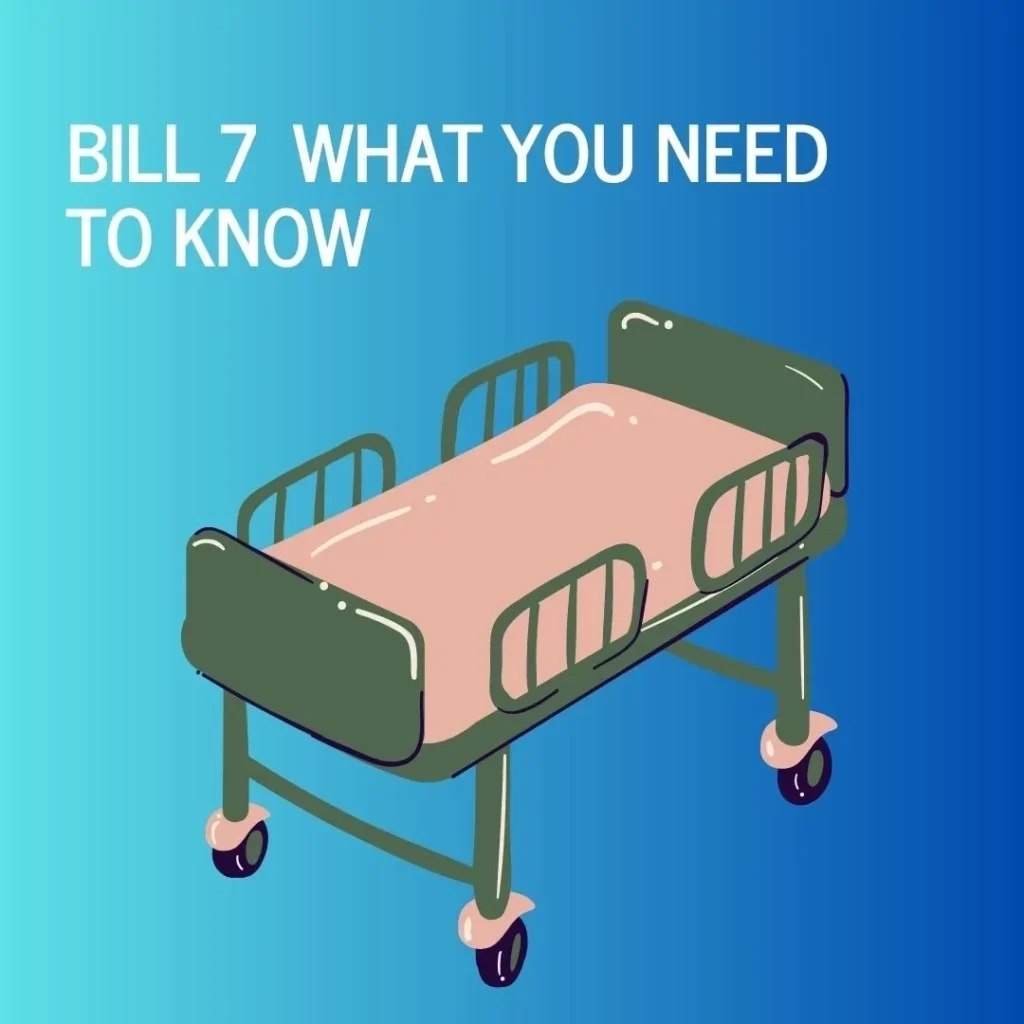
Ontario’s Bill 7, also known as the More Beds Better Care Act, allows Alternative Level of Care (ALC) patients in hospitals to choose between moving to a province-picked long-term care home or paying a daily fine of $400.

The bill became law in August 2022, and hospitals began imposing fines in November of the same year. The effectiveness of the bill and its usage remains uncertain, and several GTA hospitals have expressed reluctance to use the powers granted by the bill.
Bill 7 allows hospitals to override patient consent and secure a bed as far as 70 km away in southern Ontario and 150 km away in northern regions.
Advocates are claiming that this new Ontario law governing nursing homes is in violation of the Charter of Rights and Freedoms. The law allows the government to issue emergency orders to long-term care facilities during a public health crisis. The orders can override existing contracts and provide immunity from legal action.
According to Ontario advocates, the law violates the Charter’s guarantees of the right to life, liberty, and security of the person, as well as the right to access the courts. They argue that the law gives the government too much power over the care of vulnerable residents in nursing homes and that it may prevent families from holding facilities accountable for neglect or abuse.
“I strongly believe that Bill 7, as it stands, will not be the solution for the challenges facing Ontario hospitals,” says Jeanette Bock, CEO of Fluid Seniors Transitions an Oakville-based firm assisting seniors to live their best life by providing resources as they plan the next chapter of their lives. “I’ve seen first-hand where one of my clients was coerced by a hospital to undergo a Respite stay at a facility 77 kilometres away, costing $6500 per month, under the pretext of Bill 7, they were informed that if they remained in the hospital, they would have to pay $400 per day which left them with the impression that they had no other option but to comply,” says Bock. “The general public has never heard of Bill 7 until they are told a family member will be removed from a Hospital, which is a big problem,”
The advocates are calling for the law to be repealed or amended to ensure that the rights of nursing home residents and their families are protected. They are also pushing for increased transparency and accountability in the long-term care sector, which has been hard-hit by the COVID-19 pandemic.
The Ontario government has defended the law, saying that it is necessary to ensure that nursing homes can respond quickly and effectively to public health emergencies. However, critics argue that the law’s broad scope and lack of oversight could lead to abuses of power.
According to the current legislation, families can only sue for $30,000 in damages in cases of neglect or abuse. However, advocates argue that this cap is unjust and doesn’t consider the severe harm that can occur in these situations.
The Ontario Health Coalition and the Advocacy Centre for the Elderly have launched a legal challenge against the law, stating that it violates the Charter’s guarantee of the right to life, liberty, and security of the person.
They also argue that the cap disproportionately affects seniors and people with disabilities, who are more vulnerable to abuse and neglect in long-term care facilities.
The case is currently before the Ontario Superior Court of Justice, with a decision expected in the coming months. If the law is found to violate the Charter, it could have significant implications for the rights of nursing home residents in Ontario and across Canada.
Are you currently seeking guidance for your personal or a family member’s future plans? Jeanette Bock is available to lend a helping hand. With her extensive knowledge and expertise, she can assist in crafting the next chapter of your life with precision and care. Connect with Jeannette here https://fluidst.ca/contact
© 2025 Fluid Senior Transitions